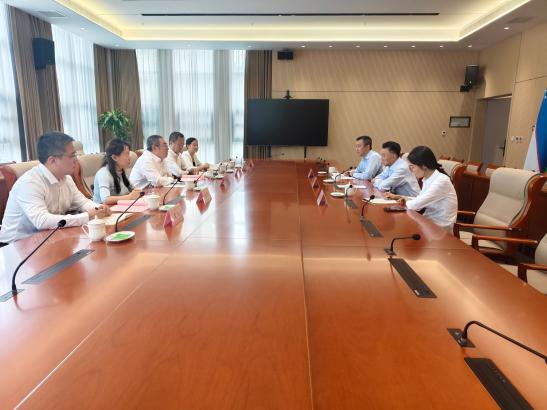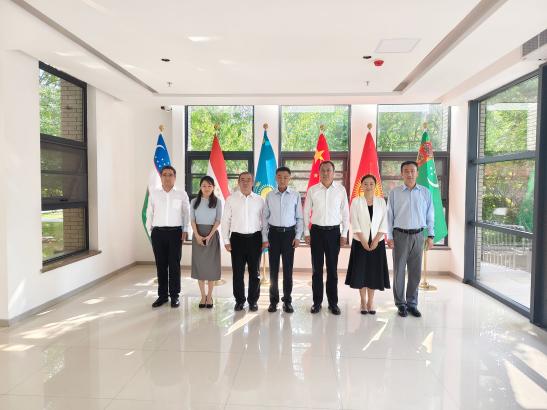On the afternoon of May 29, XSYU CPC Party Secretary Chang Jiang and Vice-President Zhang Rongjun paid a visit to the Secretariat of the China-Central Asia Mechanism for research and exchange. They had a discussion with Secretary-General Sun Weidong.

Chang Jiang introduced our university’s history of education and international cooperation, detailing the progress of key projects such as the Turkmenistan “LuBan Workshop”, the XSYU Uzbekistan campus, and “the Chinese Language Workshop”. He stated that XSYU is currently vigorously implementing open education, actively exploring new paths for educational and technological cooperation, and serving the national diplomatic agenda, national energy security, and the openness of higher education. We are constantly pushing for genuine and innovative cooperation with Central Asian countries in education and energy sectors. XSYU will closely align itself with the task requirements, deepening educational exchanges through both “going out” and “bringing in”, cultivating in-depth cooperation in energy, and fostering personnel exchanges, to continuously advance practical cooperation with Central Asian countries in education and energy sectors. We aim to promote the exchange and cooperation between China and Central Asian countries through concrete actions.
Sun Weidong, with great enthusiasm, hailed XSYU’s active response to the “Belt and Road” Initiative, emphasizing the profound achievements and practical approaches we have adopted in advancing educational cooperation with Central Asia, with a core focus on serving national energy security strategies. He then suggested ideas for the future development of key projects. He stressed that education and energy cooperation is an important domain of China-Central Asia cooperation, and the Secretariat has closely monitored XSYU’s educational and energy sector collaborations with Central Asian countries, supporting the development of key projects. He urged the school to leverage its industry-specific strengths and existing foreign cooperation advantages, contributing its wisdom and strength to promoting mutual understanding between China and Central Asian countries and fostering high-quality development of the Sino-Central Asian relations.
During the conference, both parties reached several agreements on enhancing regularized communication and providing full support for our institution’s deepening cooperation with Central Asian countries.

The Party’s office (the President’s office), the international cooperation and exchange department (the school of international education), as well as the School of Humanities leaders, accompanied the delegation.